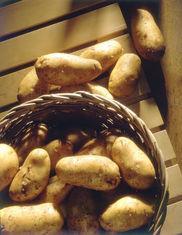
Why are Irish consumers turning their back on potatoes, the national vegetable that at has such powerful historic connotions, and opting instead for so-called ‘foreign’ foods like rice, pasta, spaghetti, and other carbohydrates?
To find out why sales have dipped by up to 25 per cent in the last five to 10 years, Bord Bia is launching an extensive marketing survey that will quiz shoppers on how they see the potato today and why so many of them are choosing alternatives.
“We need to look at everything,” said Bord Bia spokesman Mike Neary, “including how these rival foods are marketed, packaged and presented.
“Are we missing out on something here? Many of them are sold as a complete meal in minutes - are we doing enough to correct the mistaken impression that potatoes take ages to prepare in what is a time-poor society, often with both partners working?”
Nutritionists have spoken out in defence of the potato, dismissing claims that ‘foreign’ foods can help with general fitness. “The big problem is that people think the potato is fattening, when it’s not,” said consultant nutritionist Aiveen Bannon. “In fact, two potatoes are the equivalent to a portion of rice or pasta. But unlike the alternatives, potatoes are also a great source of fibre, folic acid and vitamin C.
Potatoes are important to the Irish economy, with a farmgate value of €80m a year and annual production at around 375,000 tonnes. All the alternative foods, even including french fires and frozen chips, are imported, which prompted a recent warning from the Irish Farmers’ Association about the threat to the home market.



